erdogan-anadolu-300x169.jpg" alt="Turkish President Tayyip Erdoğan : The most powerful president since Ataturk" width="300" height="169" /> Turkish President Tayyip Erdoğan : The most powerful president since Ataturk
Istanbul, 21 Rajab 1437/30 April 2016 (MINA) – In two separate speeches delivered on April 28, Turkish President Tayyip Erdoğan strongly criticized the Islamic world for failure in a number of areas.
Among his remarks was predictable criticism of Islamic countries’ failure to be united enough to fight against terrorist organizations like the Islamic State of Iraq and the Levant (ISIL), which he referred to using the Arabic acronym DAESH. He also unexpectedly took aim at the Arab League, asking: “What kind of thing is the Arab League?”
One does not frequently hear such strong criticism from Erdoğan against the Islamic world, as a conservative leader with Islamist ideological origins.
However, he also recently criticized the Sunni-Shiite sectarian divide in his address to the Organization of Islamic Cooperation (OIC) Istanbul summit on April 15, Mi’raj Islami News Agency (MINA) reported, quoting hurriyetdailynews.com.
Also Read: Activist Unfurls Palestinian Flag During German Parliament Session, Protesting Gaza Policy
The criticism expressed in the Turkish president’s speeches can be summarized under four broad topics:
1) “Unfortunately, today our children do not go to Islamic countries, but Western universities, to study science, engineering, and even [Islamic] theology,” Erdoğan said, addressing the Congress of Turkish-Arab Higher Education, complaining that some of these students returned alien “to their own people and values.” We must “upgrade our university education,” he said.
2) Erdoğan said he believes the Islamic world is threatened by the Sunni-Shiite sectarian divide, repeating what he said at the OIC meeting in the presence of the Saudi Arabian and Iranian leaders. He said he was saddened to see that some Muslims even consider the two to be separate religions. Because of that divide, the OIC cannot reach decisions on important issues, so his aim as the two-year term president of the OIC would be to overcome this problem, Erdoğan said. Former Turkish President Abdullah Gül made a similar warning in 2013, saying sectarianism could lead the Islamic world into the “darkness of the Middle Ages.”
3- Erdoğan said organizations like DAESH, al-Qaeda, Boko Haram, and al-Shabaab, which are killing people in the name of Islam, have “nothing to do with Islam” and should be fought against in unity. “What kind of shape are we in as Muslims? Both the killers and those being killed are chanting ‘Allahu Akbar’ [God is great]. Our youngsters are being deceived by these fringe organizations. We have to stop this,” he said.
Also Read: UN Experts Warn Right Violations in Kashmir by Indian Authorities
4 – Erdoğan’s criticism of the Arab League also reflects Ankara’s current perspective. “On the one hand you are talking about Islamic cooperation, on the other hand you are talking about the Arab League. But what kind of thing is the Arab League? No Arab has superiority over a non-Arab; neither does a non-Arab have superiority over an Arab. I am a Turk. My Arab brother looks differently at me. But if a Turk also looks differently at an Arab, we are doomed. We love people because of the Creator, not according to the color of their skin, their nationality or their country. We must correct this mistake,” he said.
It can be understood that Erdoğan uttered these remarks in disappointment, also noting that most of the wars, conflicts and regions sourcing terrorism are Muslim-populated geographies.
It should also be observed that migrants fleeing war, conflict and poverty in Muslim-majority countries are not going to countries ruled by Islam like Saudi Arabia or Iran. They are heading toward the European Union or the United States, or at least they want to stay in Turkey. Arab viewers love Turkish TV serials because they show that a modern urban life with some gender equality is possible for Muslims.
This alone may be enough to understand Erdoğan’s disappointment with and criticism of the Muslim world. (T/R07/R01)
Also Read: At Least Nine Children and One Woman Killed in Pakistani Airstrike on Afghanistan
Mi’raj Islamic News Agency (MINA)







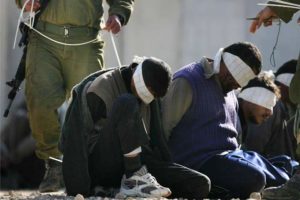



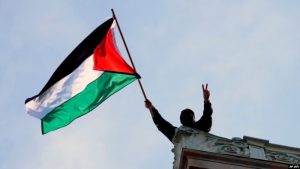


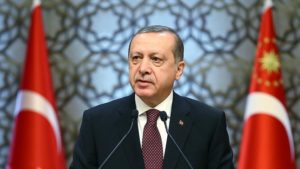


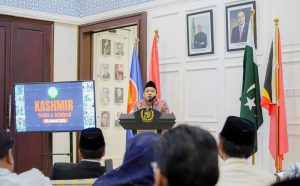
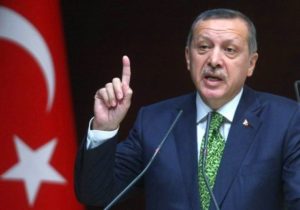
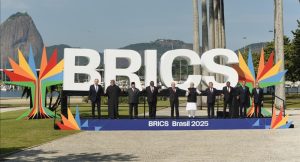












 Mina Indonesia
Mina Indonesia Mina Arabic
Mina Arabic